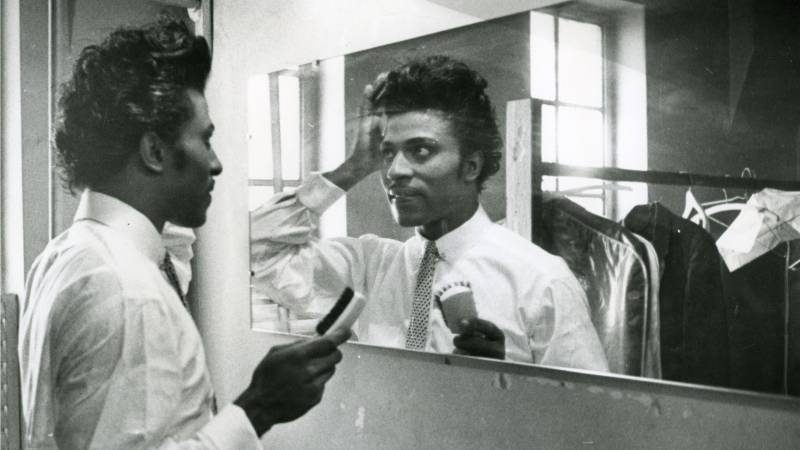Backstage after a typically sweat-drenched show, Little Richard was greeted by a man with a message. “You will always be the true king of rock and roll,” Elvis Presley told him.
That brief royal conclave nails in one line a central theme of Little Richard: I Am Everything, namely that the visionary gay Black singer and pianist from Macon, Georgia has never been rightfully recognized and crowned by the public.
Lisa Cortés’ endlessly entertaining amalgam of onstage roof-raising, backstage frolicking and up-to-the-minute queer academic analysis, screening Tuesday, April 11 at the Roxie, persuasively corrects the pop culture record. The chart-topping reason not to miss her fast and furious film, though, is that Richard Penniman was a world-class drama king.
I mean that as a compliment. In contrast to the way VH1’s much-parodied Behind the Music squeezed every molecule of melodrama, irony and pathos out of the rags-to-Rolls-to-rehab (or death) spiral of countless rock stars, Little Richard: I Am Everything offers the galvanizing spectacle of a man expressing who he was at every moment.
“Who he was” was so complicated, contradictory and confounding on so many levels that it seems that Richard’s one constant was extraordinary self-confidence. (“I’m not conceited. I’m convinced,” he told one TV interviewer.) He was also powered and guided by the God instilled in him as a child and whom he stunningly returned to at the peak of his career, turning his back on “the devil’s music” in 1958.

Even before the artist hits those heights, Little Richard: I Am Everything is biography, social history and inspirational video rolled into one manic, full-tilt boogie. The early sections recounting Richard’s youthful evolution from church gospel singer to flamboyant front man — informed and influenced by Sister Rosetta Tharpe’s electrified guitar playing, and the pompadours and makeup of Black gay singers Esquerita and Billy Wright — reasserts an often-forgotten Black history of rock and roll.




